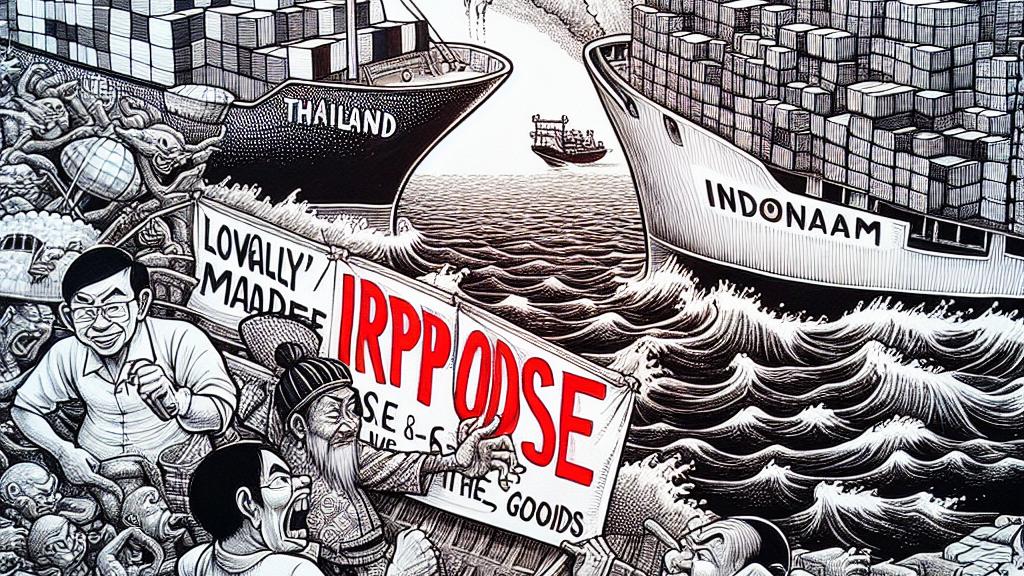Unraveling the Dragon: Southeast Asia's Economic Battle with China
Overview
- Southeast Asia is facing economic difficulties due to Chinese imports driving down local prices.
- Governments are implementing protective measures to shield domestic industries from foreign competition.
- Cultural tensions are increasing as the influence of Chinese businesses grows in the region.

Economic Pressures from Chinese Imports
Southeast Asian nations, particularly Thailand, Vietnam, and Indonesia, are experiencing significant economic challenges as they grapple with an overwhelming influx of low-priced Chinese imports. These products, often sold at prices that undercut local manufacturers, are rapidly gaining market share. This situation not only threatens the viability of local businesses but also results in widespread layoffs as companies feel compelled to reduce their operational costs to survive. The backdrop of a crisis in China's real estate sector contributes to these pressures, with an oversupply of goods forcing Chinese exporters to aggressively pursue sales in Southeast Asia. Consequently, domestic demand falters, and local economies face an uphill battle to maintain stability and protect jobs.
Government Strategies to Protect Local Economies
In light of these economic pressures, governments across Southeast Asia are taking proactive measures to defend their local economies. Thailand, for example, has seen Prime Minister Srettha calling for investigations into Chinese e-commerce platforms like Temu, amidst concerns about tax evasion and the proliferation of competitively priced products that could destabilize local markets. Other countries, such as Indonesia, are looking to impose substantial tariffs on imports, with proposed increases as high as 200% on textiles. Meanwhile, Malaysia has established a sales tax on lower-priced online imports to counter the surge of cheap goods entering the nation. These actions signify a shift toward protective economic policies, reflecting a need for local governments to address market disruptions and ensure the sustainability of homegrown industries.
Cultural Tensions and Economic Competition
Alongside these economic and regulatory challenges, cultural tensions are rising within Southeast Asia, particularly in Thailand. Many citizens harbor concerns about the increasing presence of Chinese culture and business practices, leading to fears that Thailand may become a 'colony' of Chinese influence. Social media discussions highlight worries over cultural disintegration as new Chinese immigrants integrate into the marketplace without adapting to local norms. As Thai merchants voice anxiety about competing with businesses backed by Chinese capital, the situation underscores the intertwining of economic challenges with cultural identity issues. This complex scenario suggests that Southeast Asia's relationship with China is far from simple, as economic competition fuels both apprehension and resistance among local populations.

Loading...